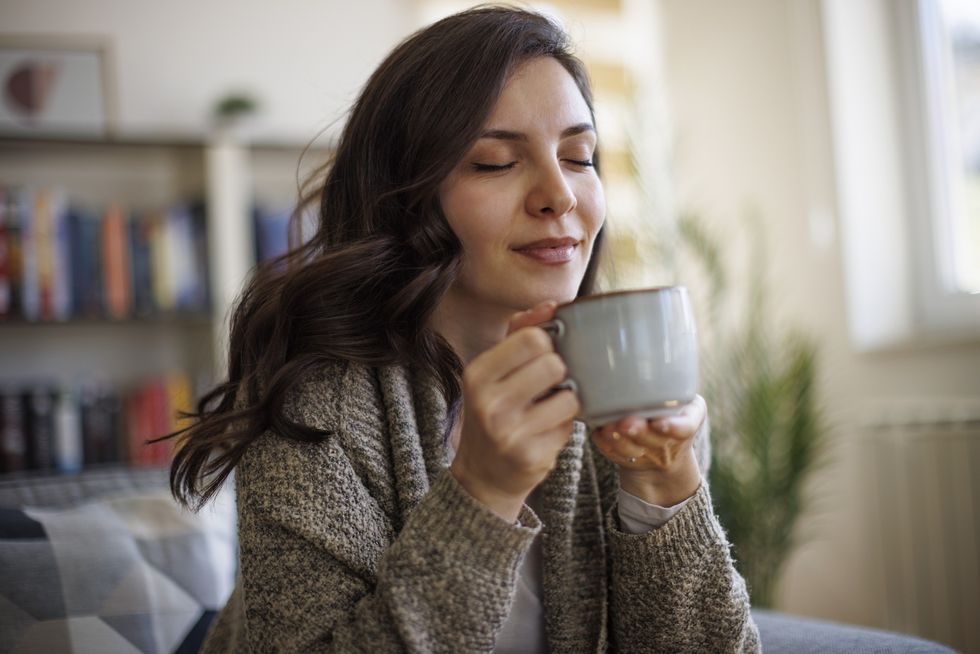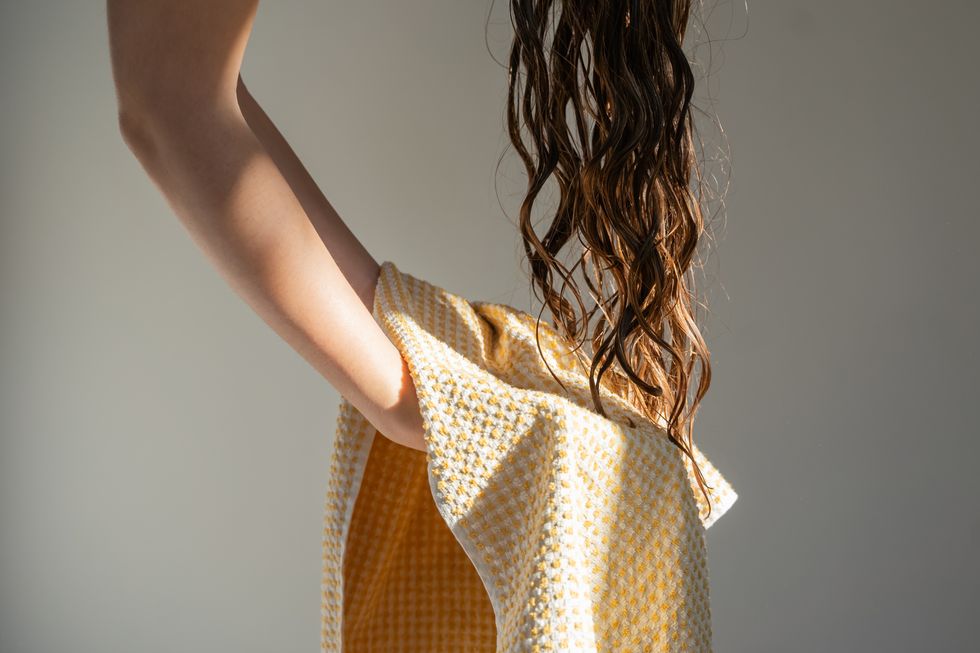Women told how to avoid 'dry and brittle' locks by 'starting within' - 'your hair will thank you!'

Water will be your best friend for achieving luscious locks
Don't Miss
Most Read
As the festive party season gets into full swing, revellers are being warned about an unwelcome morning-after effect that goes beyond the usual headache - 'hangover hair'.
Staying hydrated, applying hair masks and not using too much heat can all help you maintain your best hair year-round.
Hair expert Nicole Petty of Milk & Blush explained that, while not a medical term, hangover hair accurately describes what happens to our locks after a night of celebration.
She said: "It's what you wake up to the morning after - dry strands, frizz and knots. Your hair will look as tired and frazzled as you most likely feel."

Staying hydrated can work wonders for your hair
|GETTY
This post-party phenomenon occurs when hair suffers from a combination of sweat from dancing, alcohol-induced dehydration and unusual bedtime routines.
Some hair types are particularly vulnerable to the effects of post-party hair damage, according to Nicole. Curly hair faces a heightened risk due to its natural structure, which causes it to lose moisture more rapidly than other hair types.
Those with colour-treated hair should also be extra cautious during the festive season, the expert explained.
These hair types require particular attention and care during the party season to prevent excessive damage. Not all festive drinks are created equal when it comes to hair health, with some beverages being particularly damaging to our locks.
Champagne, despite being a celebration favourite, can cause problems due to its high sugar content and carbonation, which contribute to dehydration.
Cocktails pose a "double threat," warned Nicole, as they combine alcohol with sugary syrups and mixers.
Both red and white wines are significant culprits, with their acidic nature naturally drying out hair when consumed in high quantities.
"Major spirits like vodka, gin and rum can drive your party spirit, but they're also a nightmare for dehydration, especially when mixed with sugary mixers," explained Nicole.
So, how can you help your hair? The expert advised drinking plenty of water alongside alcoholic beverages to help counteract these effects.
"Your hair will thank you for it," she added. For those facing hangover hair, Nicole emphasised that the cure "begins from within".
"Drink plenty of water to replenish your body and hair after a long night of festivities. Dehydration can cause your scalp to dry out, increase shedding and reduce the flow of nutrients to follicles," she advised.
Consuming hydrating foods like cucumber, watermelon and coconut can provide additional moisture support, while potentially easing physical hangover symptoms.
External hydration is equally crucial for hair recovery. Nicole recommended applying a moisturising hair mask or leave-in conditioner for several hours to revive damaged locks.
For optimal results, she suggested choosing products containing specific ingredients: "Choose a mask with ingredients like hyaluronic acid, argan oil, glycerin and shea butter to maximise results."
LATEST DEVELOPMENTS

Hair masks and detanglers can protect your locks
| GETTYWhen it comes to post-party hair care, gentle handling is essential, particularly when dealing with tangles.
Nicole advised: "If you wake up in a knotted mess, avoid reaching for the hairbrush and harshly tugging at your hair."
She recommended applying a hair mask first to ease the detangling process, using fingers or a wide-toothed comb to work through knots gently.
A detangling spray or lightweight oil can help minimise breakage during this process. For washing, the experts suggested using sulphate-free shampoo to avoid further drying out the hair.
When it comes to drying, she recommended using a microfibre towel or cotton t-shirt to remove excess water. "Let it dry at least 80 to 90 per cent before taking a post-party snooze," she warned, noting that sleeping with wet hair can be damaging.
Natural drying is preferable, but if styling is necessary, use a heat protectant and stick to blow-drying rather than straightening or curling.










